CORPORATE ACTION: Colgate
Colgate Joins Forces With ShopRite And TerraCycle To Launch Recycling Competition For Schools In Several States
 Colgate has partnered with retailer ShopRite and international recycling company TerraCycle to launch the Colgate and ShopRite School Challenge, a recycling competition among participating schools in New York, New Jersey, Pennsylvania, Delaware, Connecticut, and Maryland. Winners can win prize packages worth a total of more than $92,000, such as new desks, chairs, backpacks, and school supplies, made from recycled oral care waste and packaging. Also, schools can earn more Supply Credits by voting online for their favorite registered school.[Image Credit: © Colgate-Palmolive]
Colgate has partnered with retailer ShopRite and international recycling company TerraCycle to launch the Colgate and ShopRite School Challenge, a recycling competition among participating schools in New York, New Jersey, Pennsylvania, Delaware, Connecticut, and Maryland. Winners can win prize packages worth a total of more than $92,000, such as new desks, chairs, backpacks, and school supplies, made from recycled oral care waste and packaging. Also, schools can earn more Supply Credits by voting online for their favorite registered school.[Image Credit: © Colgate-Palmolive]
CORPORATE ACTION: Henkel
Henkel Releases 30th Sustainability Report Highlighting Achievements And 2025 Sustainability Targets
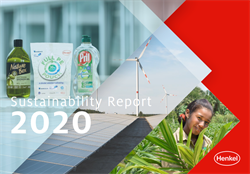 Henkel has published its 30th Sustainability Report, which details the company’s progress toward achieving its sustainability targets and highlights its 2025 environmental and sustainability objectives, including 100% recyclability or reusability of packaging. As of end-2020, Henkel said it had achieved 89% recyclability or reusability of its packaging. Also, the company aims to increase its use of recycled plastic to more than 30% of all consumer goods products worldwide. By end-2020, about 15% of the company’s packaging came from recycled plastic.[Image Credit: © Henkel]
Henkel has published its 30th Sustainability Report, which details the company’s progress toward achieving its sustainability targets and highlights its 2025 environmental and sustainability objectives, including 100% recyclability or reusability of packaging. As of end-2020, Henkel said it had achieved 89% recyclability or reusability of its packaging. Also, the company aims to increase its use of recycled plastic to more than 30% of all consumer goods products worldwide. By end-2020, about 15% of the company’s packaging came from recycled plastic.[Image Credit: © Henkel]
CORPORATE ACTION: Nestlé
Nestlé, Partner Companies Develop Food-Grade Packaging Made From Recycled Soft Plastic
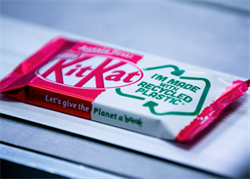 Nestlé Australia partnered with a group of companies, including CurbCycle, iQ Renew, Licella, Viva Energy Australia, LyondellBasell, REDcycle, Taghleef Industries and Amcor, to develop a prototype KitKat wrapper made from recycled soft plastic. Food-grade recycled soft plastic packaging will help the country improve waste management and develop a circular economy. The initiative was supported by Nestlé’s partnership with recycling company iQ Renew on a trial run of kerbside collection of soft plastics on the NSW Central Coast region.[Image Credit: © Nestlé]
Nestlé Australia partnered with a group of companies, including CurbCycle, iQ Renew, Licella, Viva Energy Australia, LyondellBasell, REDcycle, Taghleef Industries and Amcor, to develop a prototype KitKat wrapper made from recycled soft plastic. Food-grade recycled soft plastic packaging will help the country improve waste management and develop a circular economy. The initiative was supported by Nestlé’s partnership with recycling company iQ Renew on a trial run of kerbside collection of soft plastics on the NSW Central Coast region.[Image Credit: © Nestlé]
Nestlé Aims To Help Reduce Ocean Plastic Pollution With Five-Pillar Approach
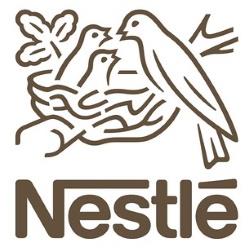 Nestlé is helping reduce the flow of plastic waste into the world’s oceans by cutting down on its use of packaging material, expanding its use of reusable and refillable systems, using new and recyclable packaging materials, and investing in waste management infrastructure. It is also collaborating with consumers and the general public to promote sustainable and responsible behavior. The company has launched paper packaging that is 100% recyclable for many of its products and has invested more than CHF 1.5 billion to source 2 million tonness of food-grade recycled plastic over the next five years. This material is expected to be recycled and reused again and again.[Image Credit: © Nestlé]
Nestlé is helping reduce the flow of plastic waste into the world’s oceans by cutting down on its use of packaging material, expanding its use of reusable and refillable systems, using new and recyclable packaging materials, and investing in waste management infrastructure. It is also collaborating with consumers and the general public to promote sustainable and responsible behavior. The company has launched paper packaging that is 100% recyclable for many of its products and has invested more than CHF 1.5 billion to source 2 million tonness of food-grade recycled plastic over the next five years. This material is expected to be recycled and reused again and again.[Image Credit: © Nestlé]
CORPORATE ACTION: Procter & Gamble
P&G Announces Efforts In Reducing Use Of Plastic Virgin In Packaging, Pushing For Circular Economy In Europe
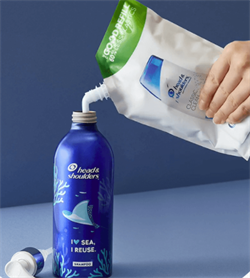 Procter & Gamble revealed its achievements toward packaging circularity in Europe. It is supporting the European Green Recovery initiative and the shift to a circular economy by becoming the first FMCG company to join the RecyClass Initiative, a recycling certification program aimed at pushing for a circular economy in Europe. Several P&G brands have been certified as meeting the initiative’s Design-for-Recycling criteria. These include Gillette and Venus, which adopted recyclable carton packaging as part of efforts to remove 545 tonnes of plastic from packaging. Head and Shoulders, Pantene, Herbal Essences and Aussie have launched a reusable 100% aluminum bottle packaging and recyclable refill pouch, made with 60% less plastic. P&G announced the refill system is available in the UK at Boots stores, and will be rolled out to Waitrose and Superdrug stores.[Image Credit: © Procter & Gamble]
Procter & Gamble revealed its achievements toward packaging circularity in Europe. It is supporting the European Green Recovery initiative and the shift to a circular economy by becoming the first FMCG company to join the RecyClass Initiative, a recycling certification program aimed at pushing for a circular economy in Europe. Several P&G brands have been certified as meeting the initiative’s Design-for-Recycling criteria. These include Gillette and Venus, which adopted recyclable carton packaging as part of efforts to remove 545 tonnes of plastic from packaging. Head and Shoulders, Pantene, Herbal Essences and Aussie have launched a reusable 100% aluminum bottle packaging and recyclable refill pouch, made with 60% less plastic. P&G announced the refill system is available in the UK at Boots stores, and will be rolled out to Waitrose and Superdrug stores.[Image Credit: © Procter & Gamble]
CORPORATE ACTION: Tesco
UK’s Tesco Launches Network Of Recycling Points For Soft Plastic Waste
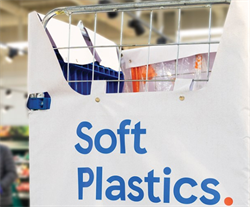
Tesco has launched a network of recycling points for soft plastic waste at 171 of the retailer’s stores in the South West of England and Wales. This marks the first time a large-scale network of collection points for soft plastic has been put in place in the UK. Most councils do not collect soft plastic waste from households. It usually ends up in landfills. Some of the most common plastic waste returned during the trial phase of the initiative included bread bags, produce packaging and salad bags.[Image Credit: © Tesco plc]
CORPORATE ACTION: Unilever
Unilever NA Invests $15M In Closed Loop Partner’s Leadership Fund
 Unilever North America said it has invested $15 million in Closed Loop Partner’s Leadership Fund, a private equity fund that buys and expands companies that promote recycling and keep materials in the circular economy and away from landfill. The investment will help recycle approximately 60,000 tonnes of plastic packaging waste in the US each year by 2025, over half of the company’s plastic footprint in North America.[Image Credit: © Closed Loop Partners]
Unilever North America said it has invested $15 million in Closed Loop Partner’s Leadership Fund, a private equity fund that buys and expands companies that promote recycling and keep materials in the circular economy and away from landfill. The investment will help recycle approximately 60,000 tonnes of plastic packaging waste in the US each year by 2025, over half of the company’s plastic footprint in North America.[Image Credit: © Closed Loop Partners]
Unilever Brands Take Steps To Reduce Use Of Virgin Plastic In Packaging
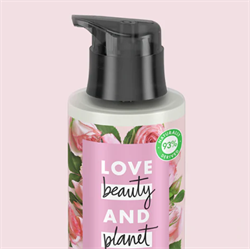
Unilever announced steps taken by its brands to help halve the company’s use of virgin plastic in packaging and eliminate more than 100,000 tonnes of plastic from its operations by 2025. Love Beauty and Planet has adopted a packaging design that uses just one type of plastic for its pumps, to make them more easily recycled; Lipton tea has started making its tea bags from plant-based materials; the Knorr food brand and Sun household cleaning brand have adopted recyclable pouches; and Hellman’s dressings introduced 100% recycled and recyclable plastic jars and bottles in North America.[Image Credit: © Unilever plc]
Unilever Works With Pasig City And Cemex To Promote Plastic Waste Collection And Recycling
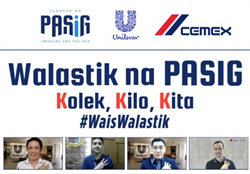
Unilever Philippines partnered with the city government of Pasig and Cemex Philippines to launch the “Walastik na Pasig” campaign supporting a plastic waste collection program. Pasig City aims to reduce by 20% the waste generated by its approximately 800,000 residents by 2025. Unilever is offering incentives to consumers and local junkshops to encourage proper waste segregation and recycling.[Image Credit: © Unilever Philippines]
Hindustan Unilever Predicts Becoming Plastic Waste-Neutral In 2021
 Hindustan Unilever expects to become plastic waste-neutral in 2021, collecting 100% of plastic waste the company generates. Also, the company will start processing of more than 1 lakh, or 100,000, tonnes of post-consumer plastic waste collected from all states and Union Territories. In 2020, the company collected and safely disposed of almost 60,000 tonnes of plastic waste.[Image Credit: © Unilever plc]
Hindustan Unilever expects to become plastic waste-neutral in 2021, collecting 100% of plastic waste the company generates. Also, the company will start processing of more than 1 lakh, or 100,000, tonnes of post-consumer plastic waste collected from all states and Union Territories. In 2020, the company collected and safely disposed of almost 60,000 tonnes of plastic waste.[Image Credit: © Unilever plc]
Unilever Pakistan Launches Campaign To Minimize Plastic Pollution In The Country
.jpg&width=250&height=188) Unilever Pakistan has launched the company’s #FaceThePlastic campaign to reduce plastic pollution and promote plastic waste recycling in the country. The company plans to reduce the use of virgin plastic in its packaging by 50% and to help collect and process more plastic packaging than it uses and sells. Also, the campaign aims to inform the public of the urgency of reducing plastic waste in the country where more than 3.3 million tons of plastic waste is generated each year.[Image Credit: © Unilever plc]
Unilever Pakistan has launched the company’s #FaceThePlastic campaign to reduce plastic pollution and promote plastic waste recycling in the country. The company plans to reduce the use of virgin plastic in its packaging by 50% and to help collect and process more plastic packaging than it uses and sells. Also, the campaign aims to inform the public of the urgency of reducing plastic waste in the country where more than 3.3 million tons of plastic waste is generated each year.[Image Credit: © Unilever plc]
CORPORATE ACTION: Other
Ulta Beauty, Loop Launch Beauty Industry’s First Online Circular Store
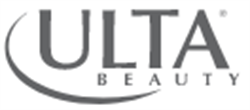 Beauty retailer Ulta Beauty has partnered with international recycling platform Loop to launch loopbyulta.com, an online store that sells beauty and personal care products. The companies said the products will be available in long-lasting and sustainable packaging that can be refilled and reused. Consumers will pay a deposit on each package when placing an order and will receive a full refund when returning the packaging. Brands available at launch of the service include Burt’s Bees, Plaine Products and Mad Hippie.[Image Credit: © Ulta Beauty]
Beauty retailer Ulta Beauty has partnered with international recycling platform Loop to launch loopbyulta.com, an online store that sells beauty and personal care products. The companies said the products will be available in long-lasting and sustainable packaging that can be refilled and reused. Consumers will pay a deposit on each package when placing an order and will receive a full refund when returning the packaging. Brands available at launch of the service include Burt’s Bees, Plaine Products and Mad Hippie.[Image Credit: © Ulta Beauty]
CAMPAIGNS, COMMITMENTS & NGOs
Europe’s Beverage Carton Industry Unveils 10-Year Roadmap To Greater Sustainability
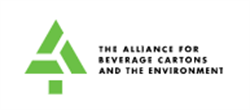 Paper packaging industry group Alliance for Beverage Cartons and the Environment has released a 10-year roadmap outlining a course of action to promote sustainability across the industry’s value chain. ACE committed to increase the collection of beverage cartons to 90% and recycling to 70% by 2030. ACE member companies will make beverage cartons only from renewable and recycled material, and they will be 100% recyclable and made fully from sustainably sourced raw materials. Also, the group will aim to make beverage cartons the packaging solution with the least carbon footprint.[Image Credit: © Alliance for Beverage Cartons and the Environment ]
Paper packaging industry group Alliance for Beverage Cartons and the Environment has released a 10-year roadmap outlining a course of action to promote sustainability across the industry’s value chain. ACE committed to increase the collection of beverage cartons to 90% and recycling to 70% by 2030. ACE member companies will make beverage cartons only from renewable and recycled material, and they will be 100% recyclable and made fully from sustainably sourced raw materials. Also, the group will aim to make beverage cartons the packaging solution with the least carbon footprint.[Image Credit: © Alliance for Beverage Cartons and the Environment ]
CONSUMER & PUBLIC OPINION
2021 Survey And Panel Discussion Look At Whether Consumers Really Care About Sustainability
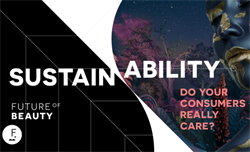 A 2021 Future Beauty: Sustainability, Do Your Consumers Really Care presentation of consumer research and panel discussion revealed plastic waste is the most important sustainability challenge for 60% of consumers. Data also revealed that consumers believe they are themselves responsible for caring for the planet, with 82% of Baby Boomers holding this view and 4% of Generation Z. Consumers, however, have no clear notion of what sustainability is, with older consumers tending to agree with the dictionary definition of sustainability as “renewing, regenerating and conserving resources we use”.[Image Credit: © The Pull Agency]
A 2021 Future Beauty: Sustainability, Do Your Consumers Really Care presentation of consumer research and panel discussion revealed plastic waste is the most important sustainability challenge for 60% of consumers. Data also revealed that consumers believe they are themselves responsible for caring for the planet, with 82% of Baby Boomers holding this view and 4% of Generation Z. Consumers, however, have no clear notion of what sustainability is, with older consumers tending to agree with the dictionary definition of sustainability as “renewing, regenerating and conserving resources we use”.[Image Credit: © The Pull Agency]
MARKET NEWS
We Are Paradoxx Raises $4 Million In Seed Funding From Private And Venture Investors
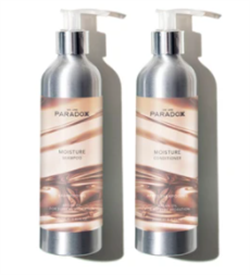
Natural beauty brand We Are Paradoxx raised US$4 million in seed funding from a group of private and venture capitalists that includes fashion retailer New Look founder, Tom Singh. The brand emphasizes plastic-free packaging and sells its shampoos, conditioners, and styling products in aluminum. The new funding follows an earlier round, which raised $1 million in very early investment, and comes after the brand’s growth and expansion into the Middle East, Baltics, Hong Kong, and the US.[Image Credit: © We Are Paradoxx]
Household Waste Recycling In England Shows Slight Increase
Households in England increased their waste recycling rate by 0.4% to 45.5% for the financial year 2019-2020. Data released by Defra on March 3, 2021 revealed that, despite the increase, England’s recycling performance fell short of the 2020 calendar year target of 50% set by the European Commission. Data also showed that the Three Rivers district council in Hertfordshire had the highest recycling rate at 64.1% among councils, with Barrow-in-Furness borough council the lowest rate at 18.8%. The total weight of waste produced by households for 2019-2020 was unchanged from the previous year at 22.1 million tonnes.
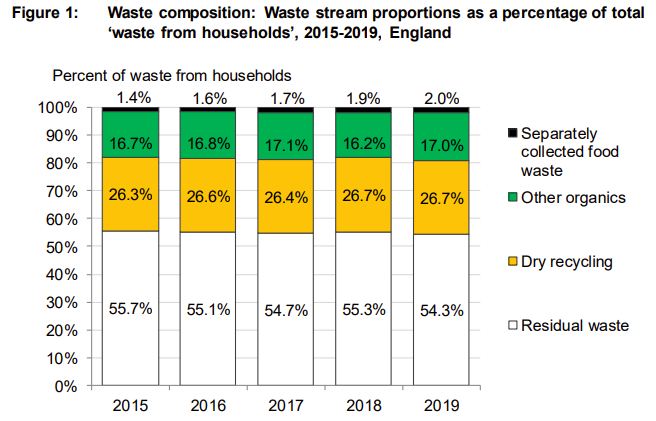 [Image Credit: © UK Government]
[Image Credit: © UK Government]
 [Image Credit: © UK Government]
[Image Credit: © UK Government]
INNOVATION & TECHNOLOGY
Unilever Japan Works With Toppan To Create Recyclable Sachet Packaging
.png&width=250&height=163) Unilever Japan chose to use the GL Barrier mono-material PET film from Toppan Printing for the packaging of its Lux Luminique Sachet Set Limited Design haircare products. The company will launch the products in April 2021, after working with Toppan in completing quality tests. Toppan uses a PET-based grade of GL Film vapor-deposited transparent barrier film combined with PET sealant to make mono-material packaging material that is easier to recycle compared with conventional single-use plastic sachets.[Image Credit: © Toppan Printing ]
Unilever Japan chose to use the GL Barrier mono-material PET film from Toppan Printing for the packaging of its Lux Luminique Sachet Set Limited Design haircare products. The company will launch the products in April 2021, after working with Toppan in completing quality tests. Toppan uses a PET-based grade of GL Film vapor-deposited transparent barrier film combined with PET sealant to make mono-material packaging material that is easier to recycle compared with conventional single-use plastic sachets.[Image Credit: © Toppan Printing ]
Copyright 2026 Business360, Inc.

